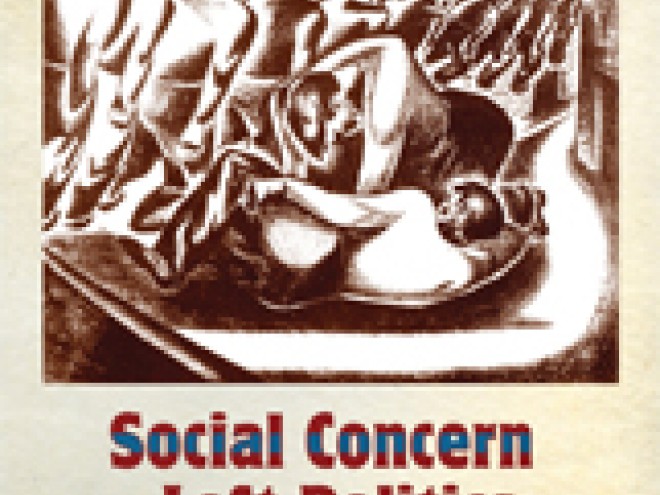
Last week, poet Molly Peacock reflected on her upbringing in a Jewish neighborhood as an Irish Protestant and how the story of a boy who saved himself from the Nazi gas chambers with a mop stayed with her through adulthood. With the release of her collection The Analyst this week, Molly is guest blogging for the Jewish Book Council all week as part of the Visiting Scribe series here on The ProsenPeople.
I was not then aware that she herself refused to pick up a brush for 25 years after a terrible critique shut her down. So often helpers help from desiccated spots in their hearts. I was utterly unaware that watching her patients grow helped Joan grow. Well, of course it was more complicated: being aware that she was helping others withstand rejection, she was able to reestablish some part of herself that allowed her to pick up a brush again.
It strikes me that, metaphorically speaking, a paintbrush is a bit like a miniature version of the mop that the boy had the wits to grab to escape death. A gigantic version of a paintbrush saved his life. Somehow, the story of the boy who picked up the mop and the story of the woman who picked up the brush after decades of hurt refusal are now for me intertwined. One is monumental and full of the noise of the shouts of the officers; the other is small and quiet. But the images seesaw back and forth.
How is it that my analyst was so sensitive to criticism? Once she asked me, “Do you know how much rejection you take?” I answered that my actor friends take a lot more rejection at auditions. My painter friend used to take half a valium before she went on rounds of galleries to show her work. I did not realize that Joan’s question came from such a deep place in her own life. It forced me to understand how much rejection I really did take — and still do. As Joan was helping me to realize this, I also developed ways to acknowledge that it was happening and to cope with it.
When I receive a rejection of a poem (and believe me, it happens, even to those of us lucky enough to have W. W. Norton as a publisher,) I don’t tell myself I should “have a thicker skin.” Poets, by virtue of what they do, must have thin skins. Instead, I tell myself it hurts. Then I wait. It takes about 48 hours before I get furious. How could that misguided editor reject my adorable poem? Then I can revise it — or not — and send it out again.
I am completely convinced that 1) being able to write poetry saved my life and
2) a woman who made a career after a critique shut her down helped make that artistic life possible. But what about her? As a teenager she turned to art to transform her deepest feelings. How could she deny the transformative power of art to herself, yet encourage it in her patients? I think of the word “courage” inside “encourage” and realize that inside the warmth of support comes the steel of bravery.
Watercolors began appearing on her walls.
When my thoughts misfired for me
you painted me a copy of their beauty.
Molly Peacock is the author of six previous collections of poetry, including The Second Blush and Cornucopia: New and Selected Poems. Her poems are included in The Oxford Book of American Poetry and appear in leading literary journals internationally. President Emerita of the Poetry Society of America, she co-created Poetry in Motion, a program of placards on subways and buses. Awarded fellowships from the Ingram Merrill, Woodrow Wilson, and Leon Levy Foundations, the National Endowment for the Arts, and the Canada Council for the Arts, Peacock is also author of a biography, The Paper Garden: Mrs. Delany Begins Her Life’s Work at 72, and a memoir, Paradise, Piece by Piece. She is based in Toronto and New York.



